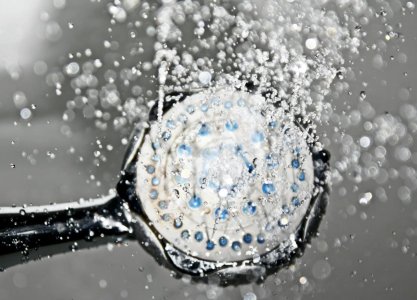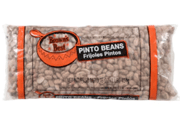Are you showering too much after 65? Experts say less may be better for your skin
By
Veronica E.
- Replies 0
Disclaimer: The information provided in this article is for educational purposes only and is not intended as a substitute for professional medical advice, diagnosis, or treatment. Always consult your physician or other qualified healthcare providers with any questions you may have regarding a medical condition or before making any changes to your health regimen.
For decades, many of us grew up believing that a daily shower was essential to good hygiene.
It became part of the routine: wake up, lather up, and start the day fresh.
But as we get older, that familiar habit may not be serving us quite as well as we think.
In fact, dermatologists warn that too much bathing after age 65 can actually do more harm than good.
It may be time to take a closer look at how often we really need to shower—and why less can sometimes be healthier.

Skin goes through natural changes as we age.
What once felt smooth and resilient often becomes thinner, drier, and more sensitive.
Oil production decreases, the skin loses elasticity, and cell turnover slows down, which makes it harder to heal.
These shifts weaken the skin’s protective barrier, leaving it more vulnerable to dryness and irritation.
When frequent showers are added into the mix—especially with hot water or harsh soaps—the damage can become even more noticeable.
The familiar “once a day” rule isn’t necessary for most older adults.
Experts recommend aiming for about two full showers per week, and limiting soap use to every third day.
On other days, cleanliness can be maintained with a quick rinse or a simple “top and tail” wash, focusing on underarms, feet, and intimate areas.
This approach preserves the skin’s natural oils while still keeping you fresh and comfortable.
Dermatologist Dr. Sylvie Meaume explains that over-washing strips away the limited natural oils aging skin still produces, which can worsen dryness and lead to itching or eczema.
An easy way to think about it: skin is like a well-worn sweater—the more often it’s washed, the faster it frays.
Treating it gently allows it to last longer and feel better.
If you’re ready to adjust your routine, these small changes can make a big difference:
Everyone’s needs are different. If you’ve been gardening, exercising, or sweating more than usual, you may need an extra rinse.
In colder months when the air is drier, fewer showers may be more comfortable.
Paying attention to your body—and your skin—will guide you to the right balance.
Cutting back on showers helps more than just dryness.
It can also reduce the risk of irritation, allergic reactions, and flare-ups of conditions like eczema.
Less time spent in a wet, slippery bathroom also means fewer chances for falls.
On top of that, showering less often saves water and energy, which is good for both your wallet and the environment.
Showering less isn’t about lowering your standards.
It’s about making choices that match your body’s needs as it changes.
Protecting your skin is part of protecting your overall health.
With age comes wisdom, and one of the lessons may be that less can truly be more.
Read next:

Have you changed how often you shower as you’ve gotten older? Did your skin improve when you adjusted your routine? Or do you have a favorite soap or moisturizer that helps? Share your stories with The GrayVine community—your experience could guide someone else toward healthier habits.
For decades, many of us grew up believing that a daily shower was essential to good hygiene.
It became part of the routine: wake up, lather up, and start the day fresh.
But as we get older, that familiar habit may not be serving us quite as well as we think.
In fact, dermatologists warn that too much bathing after age 65 can actually do more harm than good.
It may be time to take a closer look at how often we really need to shower—and why less can sometimes be healthier.

Gentle shower habits and moisturizing right after bathing can help protect aging skin. Image Source: Pexels / Pixabay.
Why your skin changes after 65
Skin goes through natural changes as we age.
What once felt smooth and resilient often becomes thinner, drier, and more sensitive.
Oil production decreases, the skin loses elasticity, and cell turnover slows down, which makes it harder to heal.
These shifts weaken the skin’s protective barrier, leaving it more vulnerable to dryness and irritation.
When frequent showers are added into the mix—especially with hot water or harsh soaps—the damage can become even more noticeable.
Also read: The risk of a common phone habit in the shower: A woman’s cautionary tale
How often should you really shower?
The familiar “once a day” rule isn’t necessary for most older adults.
Experts recommend aiming for about two full showers per week, and limiting soap use to every third day.
On other days, cleanliness can be maintained with a quick rinse or a simple “top and tail” wash, focusing on underarms, feet, and intimate areas.
This approach preserves the skin’s natural oils while still keeping you fresh and comfortable.
Also read: Are you putting yourself at risk? Texas woman dies after using tap water for routine rinse
Why less can be more for aging skin
Dermatologist Dr. Sylvie Meaume explains that over-washing strips away the limited natural oils aging skin still produces, which can worsen dryness and lead to itching or eczema.
An easy way to think about it: skin is like a well-worn sweater—the more often it’s washed, the faster it frays.
Treating it gently allows it to last longer and feel better.
Also read: Scrub smarter, not harder: Doctor-backed hygiene rules you should know
Showering tips for older adults
If you’re ready to adjust your routine, these small changes can make a big difference:
- Choose warm, not hot water to help protect moisture.
- Keep showers short, about 3–4 minutes—long enough to get clean without overdoing it.
- Use mild products such as hydrating shower oils or sensitive-skin bars.
- Pat skin dry instead of rubbing with a towel.
- Moisturize immediately after while skin is still damp to lock in hydration.
Also read: Are you making this hygiene mistake? Shocking discovery inside man's body reveals why you might be at risk!
Adjusting for your lifestyle
Everyone’s needs are different. If you’ve been gardening, exercising, or sweating more than usual, you may need an extra rinse.
In colder months when the air is drier, fewer showers may be more comfortable.
Paying attention to your body—and your skin—will guide you to the right balance.
Also read: You Won't Believe These 10 Weird Hygiene Habits from History—Are You Glad They're Gone?
Benefits that go beyond skin care
Cutting back on showers helps more than just dryness.
It can also reduce the risk of irritation, allergic reactions, and flare-ups of conditions like eczema.
Less time spent in a wet, slippery bathroom also means fewer chances for falls.
On top of that, showering less often saves water and energy, which is good for both your wallet and the environment.
Also read: Are you part of the two thirds missing out? Discover the simple hygiene habit that could slash your stroke risk!
Rethinking hygiene in later life
Showering less isn’t about lowering your standards.
It’s about making choices that match your body’s needs as it changes.
Protecting your skin is part of protecting your overall health.
With age comes wisdom, and one of the lessons may be that less can truly be more.
Read next:
- Are you making this hygiene mistake? See how it could lead to permanent tinnitus!
- Are you skipping this daily habit? Scientists say it could put your heart at risk
- The surprising link between your teeth and a healthy heart and brain—what dentists wish you knew
Key Takeaways
- Dermatologists recommend older adults shower about twice a week and use soap every third day to protect aging skin.
- On non-shower days, washing underarms, feet, and intimate areas is usually enough to stay clean.
- Hot water, long showers, and harsh soaps can damage fragile skin, while gentle products and short showers help preserve it.
- Adjusting bathing routines can reduce dryness and irritation, prevent skin conditions, and lower risks of bathroom accidents.
Have you changed how often you shower as you’ve gotten older? Did your skin improve when you adjusted your routine? Or do you have a favorite soap or moisturizer that helps? Share your stories with The GrayVine community—your experience could guide someone else toward healthier habits.






